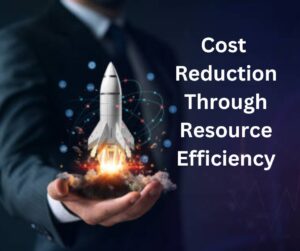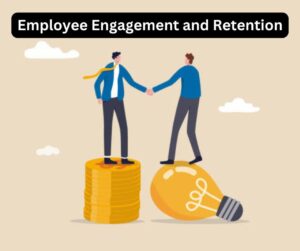
Sustainable Business Practices: Why Going Green Is More Profitable Than Ever
In recent years, the business landscape has undergone a seismic shift, with sustainability no longer being a mere buzzword but a critical strategic priority for companies worldwide.
As consumers, investors, and regulators increasingly prioritize environmental and social responsibility, businesses have realized that adopting sustainable practices is not just good for the planet but can significantly boost their bottom line.
1. Consumer Demand for Sustainable Products

– Why It Matters:
Consumers today are more environmentally conscious than ever before.
They are actively seeking out products and services from companies that align with their values, particularly those that focus on sustainability and eco-friendliness.
– Impact on Profitability:
Businesses that adopt sustainable practices can attract this growing market segment, leading to increased sales and customer loyalty.
Studies have shown that consumers are willing to pay a premium for products that are sustainably produced, offering businesses a chance to enhance their profit margins while supporting their green initiatives.
– Example:
Brands like Patagonia and The Body Shop have built a loyal customer base by emphasizing their commitment to the environment, from using recycled materials to supporting conservation efforts.
This not only enhances their brand reputation but also drives repeat business.
2. Cost Reduction Through Resource Efficiency

– Why It Matters:
One of the most immediate financial benefits of going green is the potential for cost savings through resource efficiency.
Reducing energy consumption, minimizing waste, and optimizing supply chains can translate into significant cost reductions.
– Impact on Profitability:
By implementing energy-efficient practices, businesses can lower their operational costs.
For instance, transitioning to LED lighting, improving insulation, or using renewable energy sources like solar power can dramatically cut utility bills.
Additionally, waste reduction can lead to lower disposal costs and even generate revenue through recycling programs.
– Example:
Walmart’s efforts to reduce packaging waste have saved the company millions of dollars annually while reducing its environmental footprint.
Such initiatives demonstrate that sustainability can have a direct impact on profitability.
3. Attracting Investment Through ESG Focus

– Why It Matters:
Environmental, Social, and Governance (ESG) criteria are becoming crucial for investors.
More and more, investors are looking to support companies that prioritize sustainability as part of their long-term growth strategy.
– Impact on Profitability:
Businesses that integrate sustainable practices into their operations are often perceived as lower-risk and more future-ready, making them attractive to investors.
This can lead to increased access to capital, better stock performance, and a stronger valuation in the market.
– Example:
Companies like Tesla and Unilever, which have a strong focus on sustainability, have attracted significant investment, not only because of their innovative products but also due to their commitment to reducing environmental impact.
4. Regulatory Compliance and Incentives

– Why It Matters:
Governments across the globe are implementing stricter environmental regulations to combat climate change.
Companies that proactively adopt sustainable practices are better positioned to comply with these regulations and avoid costly penalties.
– Impact on Profitability:
Early adoption of green practices not only helps businesses stay ahead of regulations but can also unlock various incentives and tax benefits.
Many governments offer grants, rebates, and other incentives to companies that invest in renewable energy, energy-efficient machinery, and sustainable practices.
– Example:
In the United States, businesses can take advantage of tax credits for using solar energy systems, which can offset a significant portion of installation costs.
This can provide a financial cushion while aligning with long-term sustainability goals.
5. Building a Stronger Brand Reputation

– Why It Matters:
In the age of social media and increased transparency, brand reputation is more important than ever.
Consumers want to support companies that they perceive as responsible and aligned with their values.
– Impact on Profitability:
A strong reputation for sustainability can differentiate a brand from its competitors, leading to increased market share.
This reputation can also create opportunities for partnerships with like-minded organizations, further enhancing the company’s visibility and reach.
– Example:
IKEA’s commitment to using sustainable materials and reducing carbon emissions has strengthened its brand reputation, making it a preferred choice among eco-conscious consumers.
This not only attracts customers but also helps in retaining them, thereby contributing to long-term profitability.
6. Employee Engagement and Retention

– Why It Matters:
Today’s workforce increasingly seeks purpose-driven employment.
Employees, particularly younger ones, want to work for companies that are committed to making a positive impact on the world.
– Impact on Profitability:
By embracing sustainability, businesses can attract top talent and boost employee morale.
Engaged employees are more productive, innovative, and committed to their work, leading to better overall performance.
Additionally, reducing employee turnover can save companies significant recruitment and training costs.
– Example:
Google’s efforts to operate on 100% renewable energy have not only helped reduce its carbon footprint but have also made it an attractive employer for those who value environmental stewardship.

Mountsinai I just like the helpful information you provide in your articles
Very happy with this escort agency, always feel valued.
“https://magical.co.kr/bbs/board.php?bo_table=free&wr_id=211701”